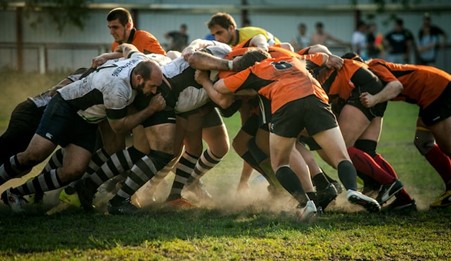Justin Tuohey is a wellness enthusiast, athlete, and entrepreneur, and in the following article, Justin Tuohey discusses the impact of recreational sports on physical and mental well-being.
Sport, a subset of physical activity, is proven to provide short- and long-term mental and physical benefits. After systematically reviewing community and elite-level adult sport participation studies, researchers (Narelle Eather, et al) have confirmed advantages ranging from lowered cholesterol to reduced hypertension to improved mood to boosted self-confidence.
Such benefits, particularly the mental health and psychological ones, seem to manifest in more profound ways when partaking in team sports. Plus, adults participating more frequently than others and with higher levels of competition have lower mental distress, according to the study review.
Justin Tuohey explains that the results aren’t so clear for elite athletes, where high levels of distress happen in one in five adults. That said, they did show higher self-esteem, life satisfaction, and body happiness than others.
However, with all studies are considered, one thing is clear — sports participation might be the only thing stopping individuals from achieving the physically and mentally content life they deserve.
Justin Tuohey Says Athletic Participation Works Wonders for Enhancing Physical Health
Physical activity of any kind builds a healthy body that helps people retain their independence as they age. But that isn’t the only physical benefit gleaned from kicking a soccer ball, hitting a hockey puck, or shooting some hoops.
Weight Control
Obesity is a constant worldwide concern, and it carries increased risks of heart disease. Thankfully, people can fight it by indulging in recreational sports.
Justin Tuohey says that it’s no secret that physical activity aids weight control. Since most sports necessitate intense movement, it’s an excellent extra-calorie burner. Although, a proper diet should also accompany this to maximize results.
Reduced Hypertension
Hypertension (i.e., high blood pressure) can be deadly, causing strokes and other life-threatening health concerns. So, people need to find a way to settle the pressure — and taking part in sports just might be the answer.
Justin Tuohey reports that doctors and other health professionals often prescribe regular physical activity to those with hypertension in an effort to naturally reduce it.
Improved Circulation
No matter the sport, participation keeps the body well-oxygenated and could even increase blood volume and hemoglobin count. As individuals engage, their hearts beat faster while they’re under increased strain. The extra load strengthens the heart muscles, improving the flow of blood throughout the whole body.
Stronger Immunity
Justin Tuohey notes that regular physical activity boosts immune systems, helping individuals fight colds, the flu, and other ailments that may otherwise cause them to stay in bed for a week. Exercise heightens the flow of white blood cells, removing toxins from the body through sport-induced sweat.
Lowered Cholesterol
Research shows that regularly active individuals benefit from much lower cholesterol levels than those who lead a mainly sedentary life. And yes, this advantage can carry on well into their 30s and beyond.
 It’s Not All Physical
It’s Not All Physical
Taking part in athletic competition boosts mood, relives stress and can help improve overall mental health, as well.
As touched on earlier, sports participation doesn’t just provide physical benefits, but it also offers exceptional mental health perks that are impossible to glean from anything else.
Boosted Mood
Justin Tuohey reports that physical activity stimulates neurotransmitters, inducing feelings of pleasure like happiness and contentment. The best part is that the endorphins released are the same, regardless of the sport. Even walking alone will have an equal mood-boosting effect.
Team sports also provide an opportunity for people to relax and unwind with their friends. This social interaction produces mental health benefits outside the actual game.
Enhanced Focus and Concentration
Justin Tuohey says that mental sharpness is one of the first things to fade with age. But it doesn’t have to be this way. Adults who keep active benefit from the improved judgment, cognitive, and analytical skills for years to come. During games, decisions must be made quickly, ensuring the brain stays alert, improving focus and concentration on non-sports-based tasks.
Improved Self-Confidence
Justin Tuohey explains that regular exercises through sports works miracles for adults’ self-confidence. Every game or practice session enhances players’ skills, improving their self-image. And as they master movements, they’ll feel incredibly proud of their achievements — something which seeps into everyday off-the-court life.
Bettered Social Skills
During sports, players must communicate with their teammates in a positive manner. Games and practice sessions improve clear, effective communication and listening skills.
Additionally, it affords people the unmatchable feeling of being part of a team. This innate human need can only truly be gleaned from sports participation.








